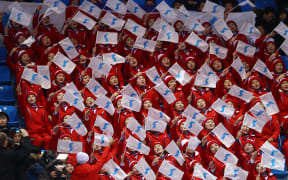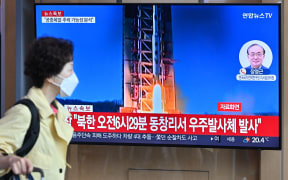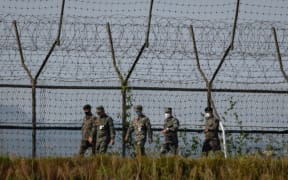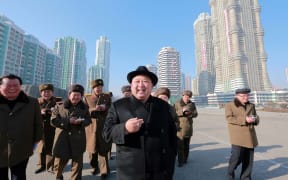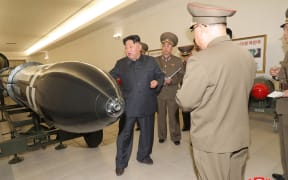By Jean Mackenzie, BBC Seoul correspondent
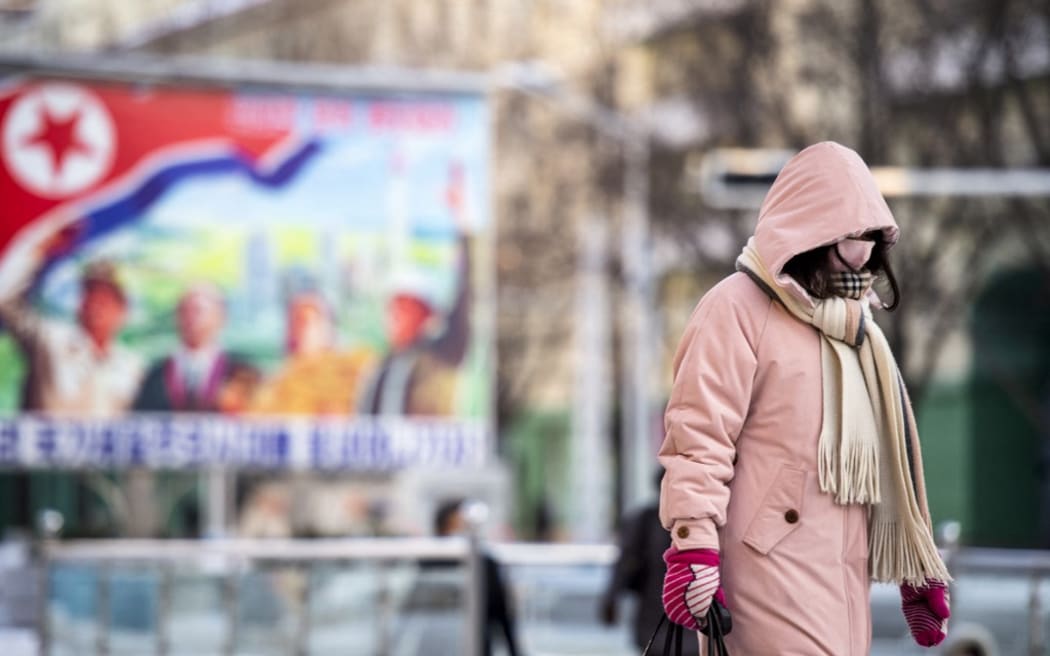
A woman walks through central Pyongyang in North Korea. Photo: AFP / Kim Won Jin
People in North Korea have told the BBC food is so scarce their neighbours have starved to death.
Exclusive interviews gathered inside the world's most isolated state suggest the situation is the worst it has been since the 1990s, experts say.
The government sealed its borders in 2020, cutting off vital supplies. It has also tightened control over people's lives, our interviewees say.
Pyongyang told the BBC it has always prioritised its citizens' interests.
The BBC has secretly interviewed three ordinary people in North Korea, with the help of the organisation Daily NK which operates a network of sources in the country. They told us that since the border closure, they are afraid they will either starve to death or be executed for flouting the rules. It is extremely rare to hear from people living in North Korea.
The interviews reveal a "devastating tragedy is unfolding" in the country, said Sokeel Park from Liberty in North Korea (LiNK), which supports North Korean escapees.
One woman living in the capital Pyongyang told us she knew a family of three who had starved to death at home. "We knocked on their door to give them water, but nobody answered," Ji Yeon said. When the authorities went inside, they found them dead, she said. Ji Yeon's name has been changed to protect her, along with those of the others we interviewed.
A construction worker who lives near the Chinese border, whom we have called Chan Ho, told us food supplies were so low that five people in his village had already died from starvation.
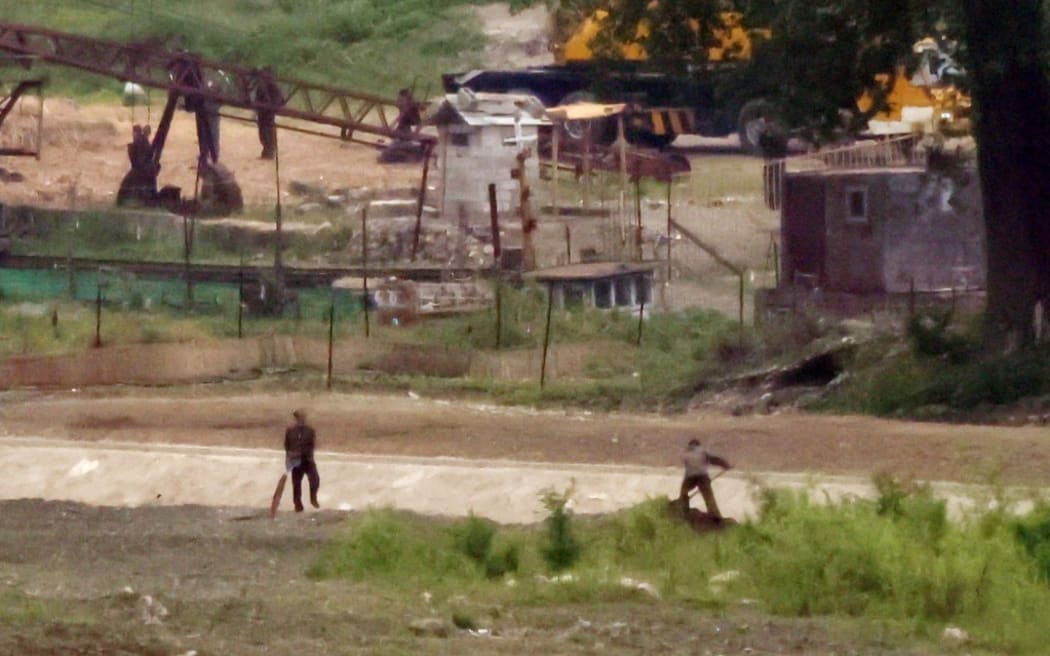
People work in the North Korean town of Sinuiju, photographed from across the border in Dandong, China in June 2023. Photo: Ichiro Ohara / The Yomiuri Shimbun via AFP
"At first, I was afraid of dying from Covid, but then I began to worry about starving to death," he said.
North Korea has never been able to produce enough food for its 26 million people. When it shut its border in January 2020, authorities stopped importing grain from China, as well as the fertilisers and machinery needed to grow food.
Meanwhile, they have fortified the border with fences, while reportedly ordering guards to shoot anyone trying to cross. This has made it nearly impossible for people to smuggle in food to sell at the unofficial markets, where most North Koreans shop.
A market trader from the north of the country, whom we have named Myong Suk, told us that almost three quarters of the products in her local market used to come from China, but that it was "empty now".
She, like others who make their living selling goods smuggled across the border, has seen most of her income disappear. She told us her family has never had so little to eat, and that recently people had been knocking on her door asking for food because they were so hungry.
From Pyongyang, Ji Yeon told us she had heard of people who had killed themselves at home or disappeared into the mountains to die, because they could no longer make a living.
She was struggling to feed her children, she said. Once, she went two days without eating and thought she was going to die in her sleep.
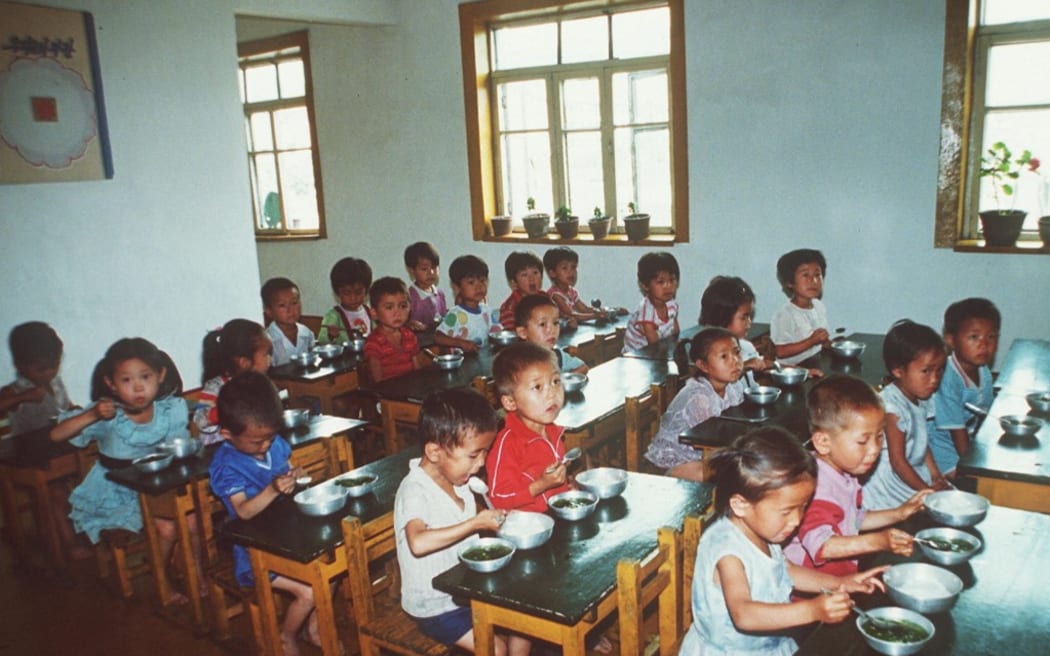
North Korean children receive UN food rations in a village northwest of Pyongyang in 1997, during the country's devastating famine. Photo: AFP / James Bu
In the late 1990s, North Korea experienced a devastating famine which killed as many as three million people. Recent rumours of starvation, which these interviews corroborate, have prompted fears the country could be on the brink of another catastrophe.
"That normal, middle-class people are seeing starvation in their neighbourhoods, is very concerning," said the North Korea economist Peter Ward. "We are not talking about full-scale societal collapse and mass starvation yet, but this does not look good."
Hanna Song, the director of NKDB, which documents human rights violations in North Korea, agreed. "For the past 10-15 years we have rarely heard of cases of starvation. This takes us back to the most difficult time in North Korean history."
Even the North Korean leader Kim Jong Un has hinted at the seriousness of the situation - at one point referring openly to a "food crisis", while making various attempts to boost agricultural production. Despite this, he has prioritised funding his nuclear weapons programme, testing a record 63 ballistic missiles in 2022. One estimate puts the total cost of these tests at more than US$500m ($805m) - more than the amount needed to make up for North Korea's annual grain shortfall.
Our interviewees also revealed how the government has used the past three years to increase its control over people's lives, by strengthening punishments and passing new laws.
Before the pandemic, more than 1000 people would flee the country each year, crossing the Yalu River into China, according to numbers released by the South Korean government. The market trader Myong Suk told us it had become impossible to escape. "If you even approach the river now you will be given a harsh punishment, so almost nobody is crossing," she said.
The construction worker Chan Ho said his friend's son had recently witnessed several closed-door executions. In each one, three to four people had been killed for attempting to escape. "Every day it gets harder to live," he told us. "One wrong move and you are facing execution."
"We are stuck here waiting to die."
We put our findings to the North Korean government, which told us it "has always prioritised the interests of the people, even at difficult times".
"The people's well-being is our foremost priority, even in the face of trials and challenges," said a representative from the North Korean embassy in London.
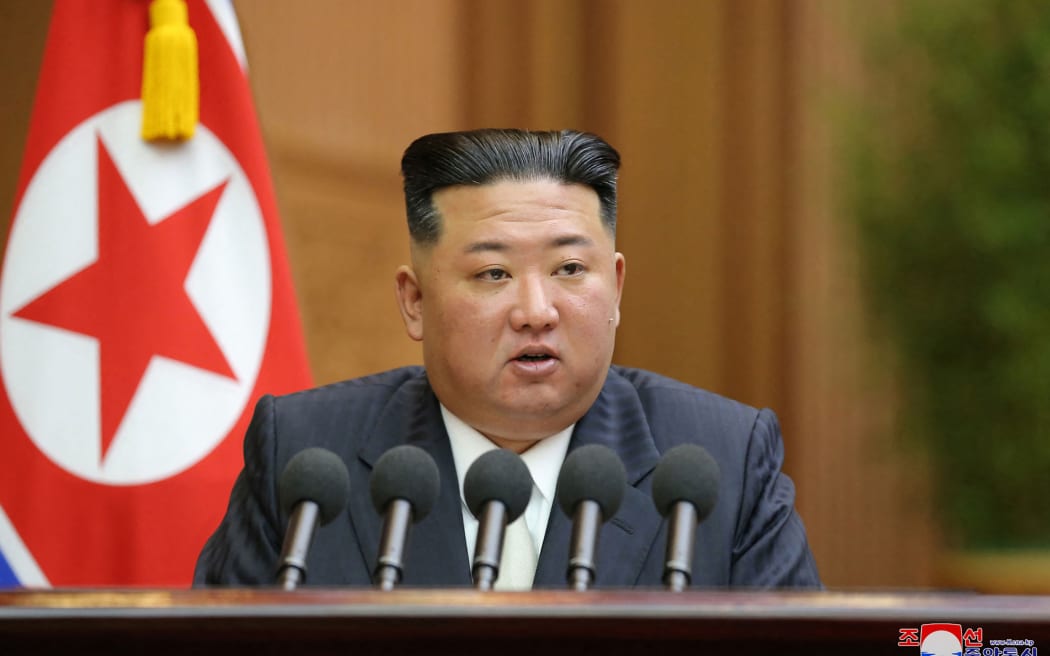
North Korean leader Kim Jong Un has acknoweldged a 'food crisis'. Photo: AFP / KCNA via KNS
They also said the information was "not entirely factual", claiming it had been "derived from fabricated testimonies from anti-DPRK [Democratic People's Republic of Korea] forces".
But Sokeel Park, from LiNK, said these interviews reveal a "triple whammy" of hardship. "The food situation has become more difficult, people have less freedom to fend for themselves, and it has become pretty much impossible to escape." They support the theory, he said, that "North Korea is now more repressive than it has ever been before."
In Pyongyang, Ji Yeon said the surveillance and crackdowns were now so ruthless that people did not trust each other. She was taken in for questioning under a new law, passed in December 2020, which bans people from sharing and consuming foreign films, TV shows and songs. Under this Reactionary Ideology and Culture Rejection Act, aimed at rooting out foreign information, those caught distributing South Korean content can be executed.
A former North Korean diplomat, who defected in 2019, said he was shocked by how extreme the crackdown on foreign influence had become. "Kim Jong Un is afraid that if people understand the situation they are in, and how wealthy South Korea is, they will start hating him and rise up," explained Ryu Hyun Woo.
Our interviews suggest that some people's loyalty has waned over the past three years.
"Before Covid, people viewed Kim Jong Un positively," Myong Suk said. "Now almost everyone is full of discontent."
This story was first published on the BBC
- BBC
